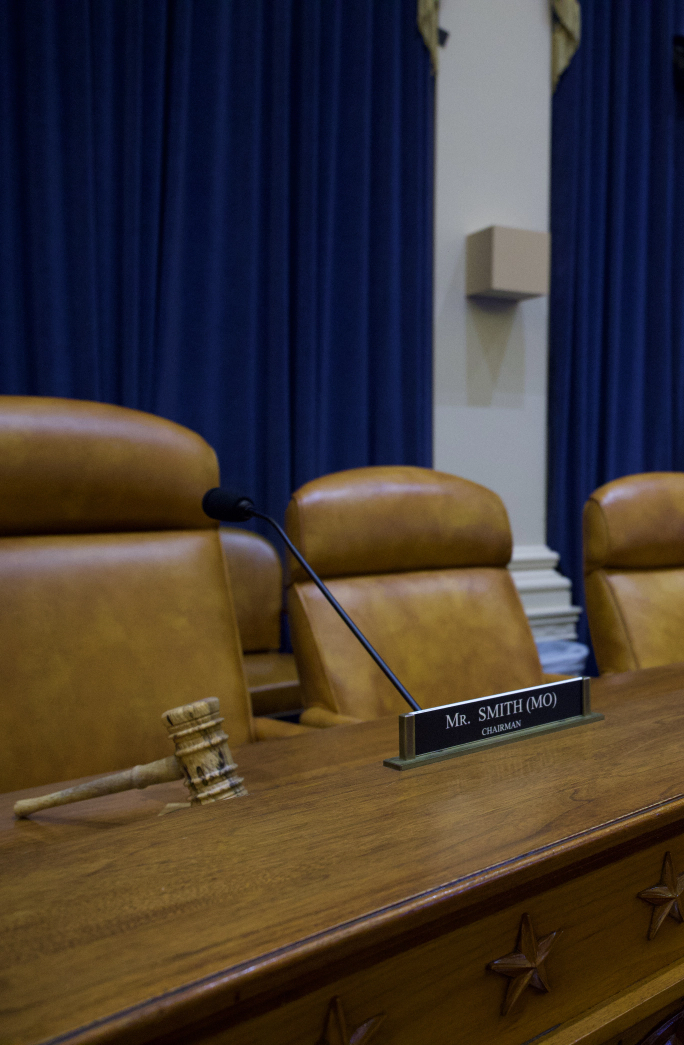
Ways & Means History
The Committee on Ways and Means, the oldest tax-writing body in the U.S. House of Representatives since 1789, shapes fiscal legislation including taxes, tariffs, and social service programs. Its notable influence is underscored by numerous members who have risen to prominent national offices, including Presidents and Supreme Court Justices.
Learn MoreLatest News
Activity

Past Activities
December 3 2025 Tax Subcommittee Hearing on Promoting Global Competitiveness for American Workers and Businesses 09:00AM ET 1100 Longworth House Office Building December 2 2025 Oversight Subcommittee Hearing on Lives at Stake: Holding Tax-Exempt Organ Procurement Organizations Accountable 10:00AM ET 1100 Longworth House Office BuildingCommittee Members
Jason Smith (MO)
Vern Buchanan (FL)
Adrian Smith (NE)
Mike Kelly (PA)
David Schweikert (AZ)
Darin LaHood (IL)
Jodey Arrington (TX)
Ron Estes (KS)
Lloyd Smucker (PA)
Kevin Hern (OK)
Carol Miller (WV)
Greg Murphy (NC)
David Kustoff (TN)
Brian Fitzpatrick (PA)
Greg Steube (FL)
Claudia Tenney (NY)
Michelle Fischbach (MN)
Blake Moore (UT)
Beth Van Duyne (TX)
Randy Feenstra (IA)
Nicole Malliotakis (NY)
Mike Carey (OH)
Rudy Yakym (IN)
Max Miller (OH)
Aaron Bean (FL)
Nathaniel Moran (TX)
View All


Ways and Means Committee Follow 25,010 66,498
It was an honor to attend the announcement of Michael and Susan Dell’s contribution to the Trump Accounts created as part of the working families tax cuts.
Generous investments like this will be of tremendous benefit to America’s children and families.
For those Dems who are screaming ‘show us the fraud in Obamacare, take a look. REAL FRAUD.
Today the House passed legislation aimed at putting small businesses first & reducing burdensome and unnecessary regulations that cost more than $3 trillion annually. Both these bills will ease bureaucratic red tape, providing much needed relief to both businesses & their…
waysandmeansgop
ICYMI: The Ways and Means Committee traveled to the Ronald Reagan Presidential Library in Simi Valley, California where we heard from farmers, small business owners, and manufacturers about how the ...
Today, the Committee passed several bills aimed at improving the lives of Americans by protecting patients, families, seniors, and taxpayers. ...
80% of tax-exempt hospitals are spending less on charity care and other critical health care priorities than they receive from their generous tax breaks. Rather than investing this money into patient ...
Tax-exempt hospitals receive special tax benefits because they have a mission to provide vital care to patients.
More transparency from these hospitals is needed so that taxpayers know what ...
The data is clear. Many tax-exempt hospitals, that receive generous tax benefits, take more from the taxpayers than they invest back into the health care mission in their communities, and it isn’t ...
When the system of benefits serving those with disabilities is overly complex, it can be a disservice to both someone looking for a new job or someone looking to hire or promote an employee.
...